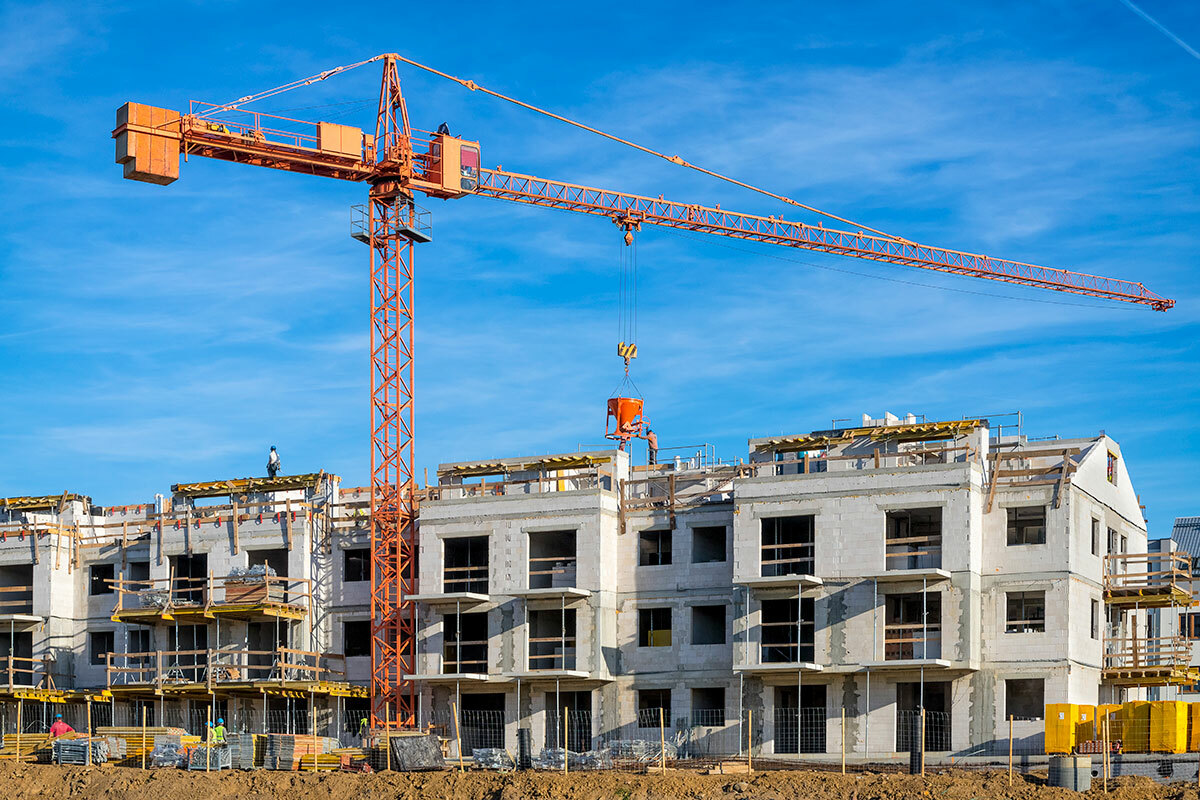The Government has officially watered-down proposals for mandatory local housebuilding targets as it brings its flagship Levelling Up and Regeneration Bill back to the House of Parliament today.
It has seen off a backbench rebellion by stating that while housing targets remain, they will be advisory and are a starting point with “new flexibilities to reflect local circumstances.”
The Department for Levelling Up, Housing and Communities said building targets remain an important part of the planning system and promised a consultation on how these can better take account of local density.
Housing Secretary Michael Gove has also asked the Competition and Markets Authority to consider undertaking a market study on housebuilding.
A statement from DLUHC said: “Buying a home is one of the most important decisions a family takes, with huge financial implications, so making sure this market is truly competitive and working in the interests of consumers is of the highest importance.”
The Government said its latest measures in the Bill will strengthen its commitment to building enough of the right homes in the right places with the right infrastructure, ensuring the environment is protected and giving local people a greater say on where and where not to place new development.
Housing targets remain an important part of the planning system and the government will consult on how these can better take account of local density.
Alongside measures in the Bill to tackle slow build out by developers, the Government will also consider new financial penalties for companies failing to deliver housing despite having planning approval and give councils powers to refuse further permission across their area.
The Bill already includes power for councils to apply a council tax premium of up to 100% on empty and second homes in areas. But given concerns local people are often forced out of the market by short term lets, the government will go further by establishing a registration scheme for these properties.
The Government will also consult on whether planning permission should be required for new short term lets, especially in tourist hotspots.
It said it will also ensure valued landscapes, such as National Parks, Areas of Outstanding Natural Beauty and the Green Belt, remain protected through robust national and local planning policies.
Gove said: “We have an urgent need in this country to build more homes so that everyone – whether they aspire to home ownership or not – can have a high-quality, affordable place to live. But our planning system is not working as it should.
“If we are to deliver the new homes this country needs, new development must have the support of local communities. That requires people to know it will be beautiful, accompanied by the right infrastructure, approved democratically, that it will enhance the environment and create proper neighbourhoods.
“These principles have always been key to our reforms and we are now going further by strengthening our commitment to build the right homes in the right places and put local people at the heart of decision-making.
“I’m grateful to colleagues across the House for their hard work and support to drive forward these much-needed changes to create a planning system that works for all.”
Anger as Michael Gove waters down 300,000 housing target
Michael Gove has played down the target of building 300,000 homes per year in response to pressure from Tory MPs – sparking fury from housing groups.
The housing secretary has written to MPs promising the target is only a “advisory’ and a “starting point”.
Gove said that “new development must have the support of local communities”, adding that the government was “now going further by strengthening our commitment to build the right homes in the right places and put local people at the heart of decision-making”.
James Forrester, managing director of Stripe Property Group, said: “This is astonishingly negligent on the part of the government.
“House building has languished below the required 300,000 annual number since the 1950’s and that’s even with the focus and accountability of local authority facing targets.
“To remove those targets is to allow the UK’s requirement to dangle in the wind and we now have even less chance as a nation of providing adequate dwelling numbers. It’s a dumb move”.
Iain Crawford, chief executive of Alliance, the Real Estate Fund, said: “Another day, another u-turn but this one is particularly serious in that in watering down the country’s likely annual residential construction output, thousands of would-be buyers and renters are going to have less choice of home.
“The result will be even higher house prices as increasing demand from net positive immigration and an aging population continues to outweigh supply.”
A vote on the Levelling Up and Regeneration Bill was dropped last month after 60 Conservatives signed an amendment calling for the mandatory target to be scrapped.
Liz Truss was against housing targets, labelling them “Stalinist” before her brief tenure as Prime Minister.
In response to the news, Labour shadow housing secretary Lisa Nandy called the government “weak”, adding that it was “”unconscionable in the middle of a housing crisis”.
The 300,000 housing target formed part of the Conservative Manifesto when Boris Johnson was Prime Minister.
The Department for Levelling Up, Housing and Communities said targets “remain an important part of the planning system”, but the government would now “consult on how these can better take account of local density”.

Government set to miss affordable housing targets – warning
The Government has been urged to revise its plans for affordable housing as MPs warn it is set to fall short of its housebuilding targets.
A report by the Public Accounts Committee today warns that the Government is likely to come up 32,000 short of the aims of its 2016 and 2021 affordable housing building programmes.
It said the Department for Levelling Up, Housing and Communities (DLUHC) admits it does not expect to deliver the intended benefits of the 2021 programme and has already downgraded its forecast, expecting to achieve 157,000 new homes in its 2016-2021 programme of house building against a public target of 180,000.
The committee claims DLUHC “does not seem to have a grasp on the considerable risks to achieving even this lower number of homes, including construction costs inflation running at 15-30% in and around London. “
The report, which comes as the Government dropped plans for mandatory local housebuilding targets, warns that not enough homes are built for social rent and said more must be done to ensure appropriate homes are built in areas where there is most demand.
Councils have few powers to insist that housing providers build the right type of homes for local people, the report said.
The committee is now calling on DLUHC to publish transparent data on where homes are built by local authority, or information about the type or size of homes in annual reports to the Committee.
The report also highlights that the failure to set any standards for homes to be net-zero may necessitate “expensive retrofitting in the future.”
Meg Hillier, chair of the committee, said: “The Government knows affordable rented homes offer the best value for money.
“Many people in high-cost areas simply can’t afford to rent privately or buy their own home and there’s a desperate need for affordable, secure rented homes. But amid all the building targets there isn’t one for affordable or socially rented homes.
“Local authorities know where and what homes must be built to address the national housing crisis but don’t have the power to act.
“The human cost of inaction is already affecting thousands of households and now the building programme is hitting the challenges of increased building costs. This does not augur well for ‘generation rent’ or those in desperate need of genuinely affordable homes.”

